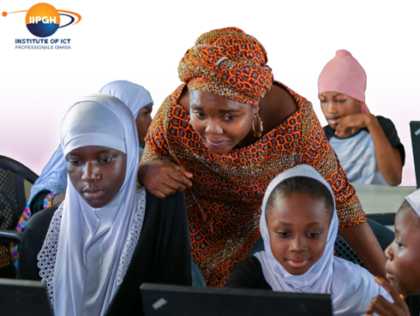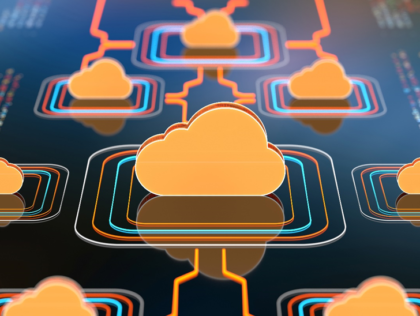Every child must be protected from violence, exploitation, and abuse on the internet – UNICEF
Child Online Protection (COP) is a global challenge that needs urgent attention. Children today have varied access to the internet through laptops, desktops, mobile phones, and tablets, with all types of information available to them.
According to a UNICEF report (Children’s Online Practices in Ghana, 2017), about 8 in 10 children visit Facebook, 5 in 10 visits WhatsApp and 2 in 10 visit YouTube. For the top three visited social networking sites/platforms, more boys and urban residents visit the sites most. 3 in 10 children have experienced something that bothered them online. 4 in 1O children will accept all requests made to them online. 2 in 10 children have met someone in person who they first got to know online. Only 1 in 1O children sends a photo or video of themselves to someone they have not met face to face, and 2 in 10 children have been treated in a harmful way or in a way they did not like while online. The report also states that about 2 in 10 parents/guardians never check what their children are doing on the internet.
The phenomenal growth of internet usage provides opportunities for these children to access and share useful materials for learning. However, the lack of digital literacy and online safety measures will expose these children to the dangers of cyberbullying, sexual extortion, and other crimes as mentioned in the part one (1) of this article. These and other findings give rise to the need for stiffer controls and measures in child online protection.
In this second part, we shall focus on other online sexual offenses as per sections 67 (Non-consensual sharing of intimate image), and 68 (Threat to distribute prohibited intimate image or visual recording). To sum it up, I will discuss matters of legislation and service providers in section 87 (Blocking, filtering, and taking down of illegal content) of the Cybersecurity Act, 2020.
Section 67: Non-consensual sharing of intimate image
A non-consensual intimate image is a sexually explicit material (images, videos, animation, etc, as clarified in the previous article) captured, published, and shared without the consent of one or more persons in the material. It is illegal to electronically share sexual images of a person, taken without their knowledge or consent. This is likened to sending nude photos and other explicit images through email, text, and/or social media platforms to exposing oneself in public to strangers, which is referred to as indecent exposure. Also, an intimate image is a picture or recording in which a person is nude, partially nude, or engaged in explicit sexual activity that is made in circumstances that give rise to an expectation of privacy in the picture or recording.
Section 67 states that “a person shall not, with intent to cause serious emotional distress, intentionally distribute or intentionally cause another person to distribute the intimate image or prohibited visual recording of another identifiable person without the consent of the person depicted in the intimate image and in respect of which, there was a reasonable expectation of privacy both at the time of the creation of the image or visual recording and at the time the offence was committed.”
In this case, “serious emotional distress” includes any intentional conduct that results in mental reactions such as fright, nervousness, grief, anxiety, worry, mortification, shock, humiliation, and indignity, as well as physical pain.
It is important to know that, in most cases, these intimate images or videos are stolen from the victims’ phones or laptops. They are also captured from the bathrooms, swimming pools, and changing rooms. Those non-consensual intimate images are later used to stalk and extort money from victims, their families, or even friends.
Simply, do not leave your phone or devices unlocked. The only immediate option available currently to prevent incidents of non-consensual intimate images is to practice good digital security, as there are other threats such as spyware used to spy on people, that allows greater perpetration of such incidents. Spyware can be installed without the device owner’s consent to secretly monitor, or stream the victim’s personal information—images, videos, and geolocation data.
Section 68: Threat to distribute prohibited intimate image or visual recording
As defined earlier, an intimate image here comes with an expectation of privacy. “A person shall not threaten another person to distribute a prohibited intimate image or visual recording of that person in a way that would cause that other person distress reasonably arising in all the circumstances and the threat is made in a way that would cause that other person fear, reasonably arising in all the circumstances, of the threat being carried out.”
In a street sense, this is like intimate image abuse or cyberbullying committed by anyone, sometimes an aggrieved former partner, but NOT always. The content is shared in an act of revenge to embarrass, humiliate, or cause distress to a person. You do not have to be in a relationship with the perpetrator for it to be considered intimate image abuse.
Although it is a crime to distribute prohibited intimate images or visual recording, many women face different means of extortion such as blackmailing. Once their images or videos are being leaked, victims are sometimes asked to pay amounts of money for their intimate images ‘not to be publicly’ distributed online—online violence.
From the above issues and provisions, how can the service provider and authorities take responsive roles in helping to tackle such a situation that plunges many, especially females, into pain, confusion, anger, depression, and worst, silence for the victim? This brings us to the last section of provisions of COP.
Section 87: Blocking, filtering and taking down of illegal content
“The Authority may, on the order of a court, authorize a service provider to block, filter, or takedown illegal content and phone numbers used for a malicious purpose which seeks to undermine the cybersecurity of the country. The grounds for blocking, filtering, and taking down illegal content and phone numbers include the protection of national security; the protection of children; the public safety; the prevention or investigation of a disorder or a crime; the protection of health; the protection of reputation or the rights of an individual; the prevention of the disclosure of information received in confidence; compliance with a legal order; or any other ground that the Authority may determine.”
A comprehensive framework of law is an essential tool for promoting a supportive and safer online environment for children and young people. Such a regulatory model or set of rules may extend the grounds on which blocking or removal may legitimately be taken even without the need for a court order. Authorities (administrative or police) or public prosecutors can be given specific powers to order internet access providers to block access without advance judicial authority. This requires action on the part of the internet service provider within a specified period, and without any notice being given to the content provider or host themselves. In some countries, where a court order is otherwise needed, hosting providers who have knowledge of such material may be expected to remove it voluntarily without judicial authority and to provide the content provider with due notice.
Conclusion
From these provisions of the Act, it is understandable why we must practice online safety, and the need to promote social responsibility for posting and sharing information because no one deserves any kind of humiliation and indignity, fright, nervousness, grief, anxiety, worry, shock, as well as physical pain. All stakeholders, Government Ministries/Departments, law enforcement agencies, civil society organizations, private corporations, etc. should join hands to contribute to child online protection. Parents/guardians have a significant role to play in supporting, mediating or monitoring without limiting the rights of children as they use the internet.
To stay safe online, never give out your passwords—keep them to yourself; not everyone online is who they say they are; do not meet up with people you have met online; think carefully about what you say before you post anything online—they are your digital footprints, it stays there forever; think before you share any material online; if you feel threatened, report to the National Cyber Security Centre (NCSC) or any authority, call or text 292 for help.
Author: Richard Kafui Amanfu – (Director of Operations, Institute of ICT Professionals, Ghana)
For comments, contact richard.amanfu@iipgh.org or Mobile: +233244357006





